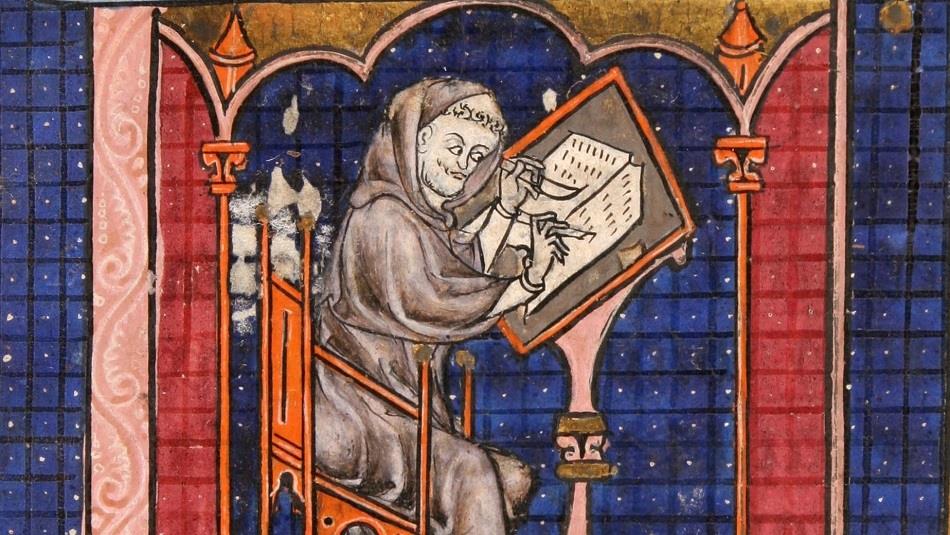He is the founder and theorist of the English Catholic Church: Who is Saint Bede the Venerable?
According to him, philosophy is the assistant of religion, problems that do not concern religion have nothing to do with philosophy. He has been called the "founder of English philosophy".

Born near Northumberland, England, he died in Wearmouth Abbey, where he stayed all his life. There is no detailed information about the life of Beda Venerabilis. Orphaned at the age of seven, according to surviving sources, he was brought up with the priest Benedict, who was the founder of Wearmouth Abbey. He was educated in this monastery and studied all the Greek and Latin philosophers who came before him and whose works were known at that time.
Bede (672/3 – 26 May 735) was an English monk and an author and scholar. He was one of the greatest teachers and writers of the Early Middle Ages, and his most famous work, Ecclesiastical History of the English People, gained him the title "The Father of English History". He served at the monastery of St Peter and its companion monastery of St Paul in the Kingdom of Northumbria of the Angles.
After the birth of Christianity, he studied the writings of the "church fathers" who tried to reconcile philosophy with religion, opened a new era of thought, worked on physics, mathematics, astronomy, and geography, and was interested in the history of churches. He became a priest at the age of thirty, after which he concentrated all his studies on theology and philosophy.
His main work, which made Beda Venerabilis famous and earned him the reputation of "The Venerable", is his history, named Histona Ecclesiastica Gentis Anglorum, which he put forward based on written sources from the Roman and English churches. Although this work is a church history, it is full of extensive information including the social events of England, the problems related to religion and theology, and the life stories of important people until the age of the author.
The thoughts of Beda Venerabilis, who entered philosophy through science and theology, are found in the interpretations originating from the Bible. These interpretations, some of which are in the form of poetry and some in prose, contain all types of information about human beings. According to him, philosophy is the assistant of religion, problems that do not concern religion have nothing to do with philosophy. The essence of religion is the existence of God. God is the creator, the creator, the eternal. There is no possibility of comprehending the essence of God, he is the "supreme being" who transcends the limits of reason and understanding. Philosophy and theology can only consider God's attributes. All that is revealed in the Bible are certain, indisputable truths. The God-Spirit-Son trinity is a reality beyond all doubt.
According to him, both the universe and man were "created" as revealed in the Bible, and man initially committed a crime of his own free will. Jesus suffered for the forgiveness of this sin and devoted himself to the salvation of man. A person's destiny cannot be changed without the grace of God because of the crime he initially committed of his own free will, all authority is in the hands of God. God is pure mind, pure will, pure light. Believing is superior to the master, he is equipped with more adequate possibilities than the master in comprehending the truth. Values such as beautiful and good can be defined by following what is revealed in the Bible. What God has commanded to be done is good, good, true, true. What he does not want to be done is also bad, ugly, not real, not true. Therefore, the only source of aesthetics and ethics is religion, guiding faith. Man, as a thinking being, must first be attached to faith and then to reason. Choosing one of these and not valuing the other can lead to error. However, it should not be overlooked that belief is superior to master.
Beda Venerabilis was forgotten for a while, and his works attracted attention only in the church circle, especially among Catholic organizations. His reputation spread rapidly after the first publication of Historia Ecclesiastica in 1474 in the mid-15th century, he was called the "founder of English philosophy". From the 16th to the end of the 19th century, his Historia was read as the source work of the English churches.
